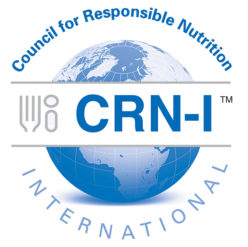Nutrition Issues in Codex: Health Claims, Nutrient Reference Values and WTO Agreements
1 NOVEMBER 2011 | KRONBERG IM TAUNUS, GERMANY
Download 2011 CRN-I Scientific Symposium Report (PDF) or view via European Journal of Nutrition
ABSTRACT TRANSLATIONS:
Arabic | Chinese | English | French | German | Japanese | Korean |Portuguese | Russian | Spanish
Background
Codex documents may be used as educational and consensus materials for member governments. Also, the WTO SPS Agreement recognizes Codex as the presumptive international authority on food issues. Nutrient bioavailability is a critical factor in determining the ability of nutrients to provide beneficial effects. Bioavailability also influences the quantitative dietary requirements that are the basis of nutrient intake recommendations and NRVs.
Health claims
Codex, EFSA and some national regulatory authorities have established guidelines or regulations that will permit several types of health claims. The scientific basis for claims has been established by the US FDA and EFSA, but not yet by Codex. Evidence-based nutrition differs from evidence-based medicine, but the differences are only recently gaining recognition. Health claims on foods may provide useful information to consumers, but many will interpret the information to mean that they can rely upon the food or nutrient to eliminate a disease risk.
Nutrient reference values
NRVs are designed to provide a quantitative basis for comparing the nutritive values of foods, helping to illustrate how specific foods fit into the overall diet. The INL-98 and the mean of adult male and female values provide NRVs that are sufficient when used as targets for individual intakes by most adults.
World Trade Organization agreements
WTO recognizes Codex as the primary international authority on food issues. Current regulatory schemes based on recommended dietary allowances are trade restrictive. A substantial number of decisions by the EFSA could lead to violation of WTO agreements.
